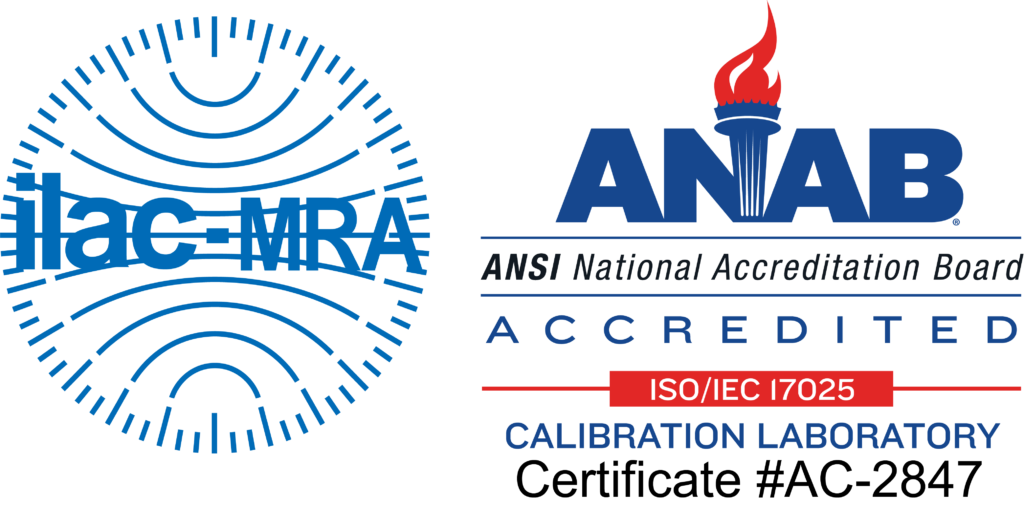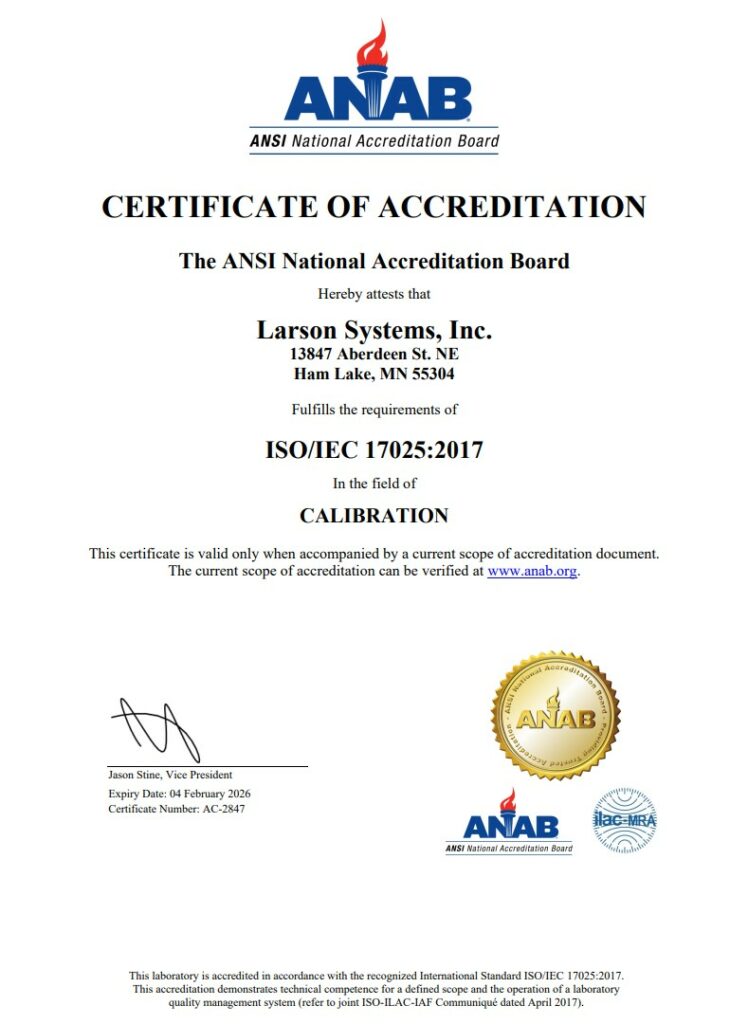Our calibration laboratory has been approved for ISO/IEC 17025 accreditation by the ANSI National Accreditation Board (ANAB) for in-house and on-site calibrations.
Achieving ISO/IEC 17025 accreditation shows our commitment to providing the highest quality calibration service, both in our own factory and on-site at your business. Larson Systems Inc.’s customers can have the utmost confidence in the precision and accuracy of every instrument we calibrate, whether it’s one of our own innovative spring testers or another force / length, force or torque measurement instrument.
SCOPE OF ACCREDITATION TO ISO/IEC 17025:2017
Larson Systems Inc
13847 Aberdeen Street NE
Ham Lake, MN 55304
Tim Larson
763-780-2131
Certificate Number: AC-2847

Length Dimensional Metrology
| Parameter/ Equipment | Range | Expanded Uncertainty of Measurements (+/-) | Reference Standard, Method &/or Equipment |
Force/Length Measurement Instrument1 |
(0 to 13) in | 150 µin | Gauge Blocks |
| (13 to 25) in | 600 µin | ||
| (25 to 36) in | 1200 µin | ||
| (36 to 48) in | 1800 µin | ||
| (48 to 88) in | 3800 µin |
Mass and Mass Related
| Parameter/ Equipment | Range | Expanded Uncertainty of Measurements (+/-) | Reference Standard, Method &/or Equipment |
Force Measurement1 |
(2 to 250) lbf | 0.013% of reading | Dead Weight |
| (250 to 1000) lbf | 0.014% of reading | Dead Weights w/Fixture | |
| (1000 to 11500) lbf | 0.013% of reading | Dead Weight w/Fixture | |
| (11 to 200) lbf | 0.029 lbf | 200 lb Force Meter | |
| (200 to 750) lbf | 0.16 lbf | 750 lb Force Meter | |
| (750 to 2000) lbf | 0.4 lbf | 2000 lb Force Meter | |
| (200 to 10000) lbf | 0.035% of reading | 10K Force Meter | |
| (10000 to 50000) lbf | 0.037% of reading | 50K Force Meter |
Mass and Mass Related
| Parameter/ Equipment | Range | Expanded Uncertainty of Measurements (+/-) | Reference Standard, Method &/or Equipment |
| Torque1 | (0.09 to 3) lbf•in | 0.03% of Reading | Dead Weight and Torque Arm |
| (3 to 500) lbf•in | 0.03% of Reading | ||
| (500 to 3120) lbf•in | 0.031% of Reading |
- On-site calibration service is available to this parameter, since on-site conditions are typically more variable than those in the laboratory, larger measurement uncertainties are expected on-site than what is reported on the accredited scope.


